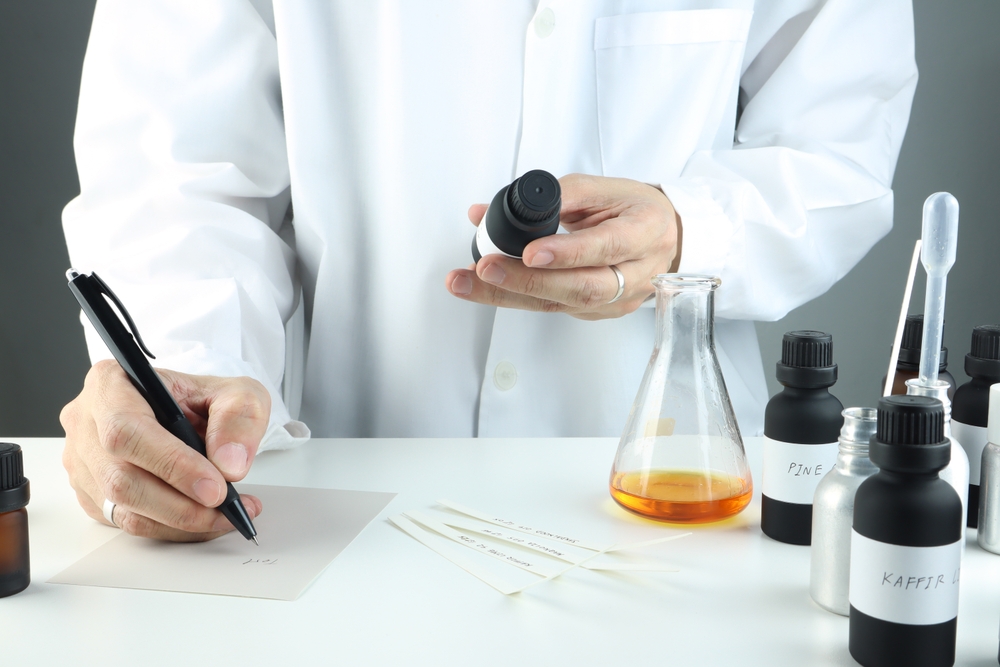What Is Chemical Blending & Why Does It Matter for Your Formulations?

What Is Chemical Blending & How Does It Drive Custom Formulation Development?
In today’s industrial landscape, chemical blending lies at the heart of custom formulation development — from household goods to paints and coatings and beyond. The ability to transform a concept into a market-ready product relies on rigorous processes, scientific expertise, and technical precision. Each step in formulation development, from initial ideation to final chemical blending, is a collaborative journey that ensures product integrity, quality, and consistency.
Step 1: Ideation and Initial Concept Development
The first stage in custom formulation development is generating and refining the initial concept. This is where product goals, target specifications, and functional requirements converge. Typically, this process begins with a collaborative meeting between the client and a skilled formulation team to discuss core questions:
- What is the purpose of the product?
- What unique benefits or characteristics should it offer?
- What environmental, regulatory, or safety considerations are essential?
Understanding the end-use application is crucial at this stage. Whether it’s a specialized cleaning agent or a unique paint formulation, the desired qualities and performance parameters need to be clearly outlined. A comprehensive concept brief outlining objectives, limitations, and target characteristics sets a solid foundation for the next steps in the formulation process.
Step 2: Research and Ingredient Selection
With a defined concept in place, the next step is to identify suitable ingredients that will deliver the required properties. This phase involves extensive research, where scientists analyze each potential component, ensuring it meets specific safety, performance, and regulatory requirements.
Ingredient selection is a crucial aspect of custom formulation. Some of the key factors considered include:
- Functionality: Each ingredient must contribute to the desired performance, such as stability, efficacy, or sensory attributes.
- Compatibility: Components must interact without unwanted reactions or diminished performance.
- Cost-Effectiveness: Ingredient cost can influence final product pricing, so a balance between quality and affordability is key.
- Sustainability & Environmental Impact: Clients increasingly favor renewable or biodegradable components to reduce their footprint.
The choice of ingredients ultimately shapes the product’s identity, making this phase both creative and scientific.
Step 3: Prototype Formulation and Testing
Once ingredients are chosen, prototype formulations are created. This experimental phase uses specialized equipment and precise chemical blending techniques to mix initial batches and evaluate stability, efficacy, and performance.
Testing ensures the prototype meets intended specifications. Key tests include:
- Stability Testing: Verifies integrity over time under various conditions.
- Performance Testing: Confirms real-world functionality.
- Safety & Toxicology: Identifies risks or side effects.
- Shelf Life Testing: Assesses response to temperature, light, and humidity.
Multiple iterations may follow, adjusting concentrations, ingredient ratios, or blending methods to hone the ideal formulation.
Step 4: Scale-Up and Pilot Production
With a stable prototype, the next phase is scaling up to pilot production. This tests reproducibility on a larger scale without compromising quality or performance.
Key scale-up considerations include:
- Manufacturing Adjustments: Lab-scale methods differ from industrial blending and require calibration.
- Equipment Calibration: Mixers and reactors must be precisely tuned for larger volumes.
- Pilot Batch Testing: Ensures each batch matches prototype quality.
Pilot runs bridge development and full production, allowing final refinements to blending and packaging.
Step 5: Full-Scale Production and Chemical Blending
After pilot success, move to full-scale production. Precise chemical blending is critical to maintain consistency and compliance in every batch.
Effective chemical blending ensures:
- Homogeneity: Prevents quality variations.
- Efficiency & Cost-Control: Streamlines production and reduces overhead.
- Safety & Compliance: Meets environmental and regulatory standards.
Partnering with an experienced chemical blending provider lets you focus on innovation, while they handle manufacturing complexities.
Step 6: Quality Control and Assurance
Quality control (QC) is integral at every stage, especially during full production. Robust QC ensures each batch meets strict standards and quickly flags any deviations.
Core QC practices include:
- Batch Sampling: Random tests verify consistency and potency.
- Traceability: Detailed records enable recalls or audits.
- Regulatory Compliance: Adheres to EPA, FDA, OSHA, and other standards.
- Customer-Specific Testing: Custom formulations may require additional validation.
At ITC, rigorous QC protocols guarantee reliable, high-quality products for every client.
Step 7: Packaging and Labeling
Once QC is passed, the product moves to packaging and labeling. Packaging protects the product and reinforces your brand image.
Key considerations:
- Material Compatibility: Ensures no chemical interactions with packaging.
- Sustainable Options: Recyclable or reduced-plastic materials.
- Label Compliance: Accurate ingredient, usage, and safety info.
Effective packaging boosts shelf appeal and consumer trust.
Step 8: Launch and Post-Launch Support
With packaging complete, the product is ready for market. ITC’s support continues post-launch, gathering feedback and making any needed formulation tweaks.
Post-launch services include:
- Formulation Tweaks: Adjust based on user feedback or trends.
- Troubleshooting: Resolve production or performance issues.
- Scale Optimization: Further scale-up to meet growing demand.
The Importance of Partnering with a Reliable Chemical Blending Provider
Custom formulation development is multi-stage and demands precision, expertise, and adaptability. Partnering with a provider like ITC, with state-of-the-art facilities and a commitment to quality, ensures your product vision becomes reality.
Why Choose Industrial Technology Corporation for Custom Formulation and Chemical Blending?
Whether you need custom toll blending services, private-label opportunities, or quality chemical formulations, Industrial Technology Corporation is ready to partner with you. Contact us today to discuss your requirements and bring your concept to life with expert chemical blending.
